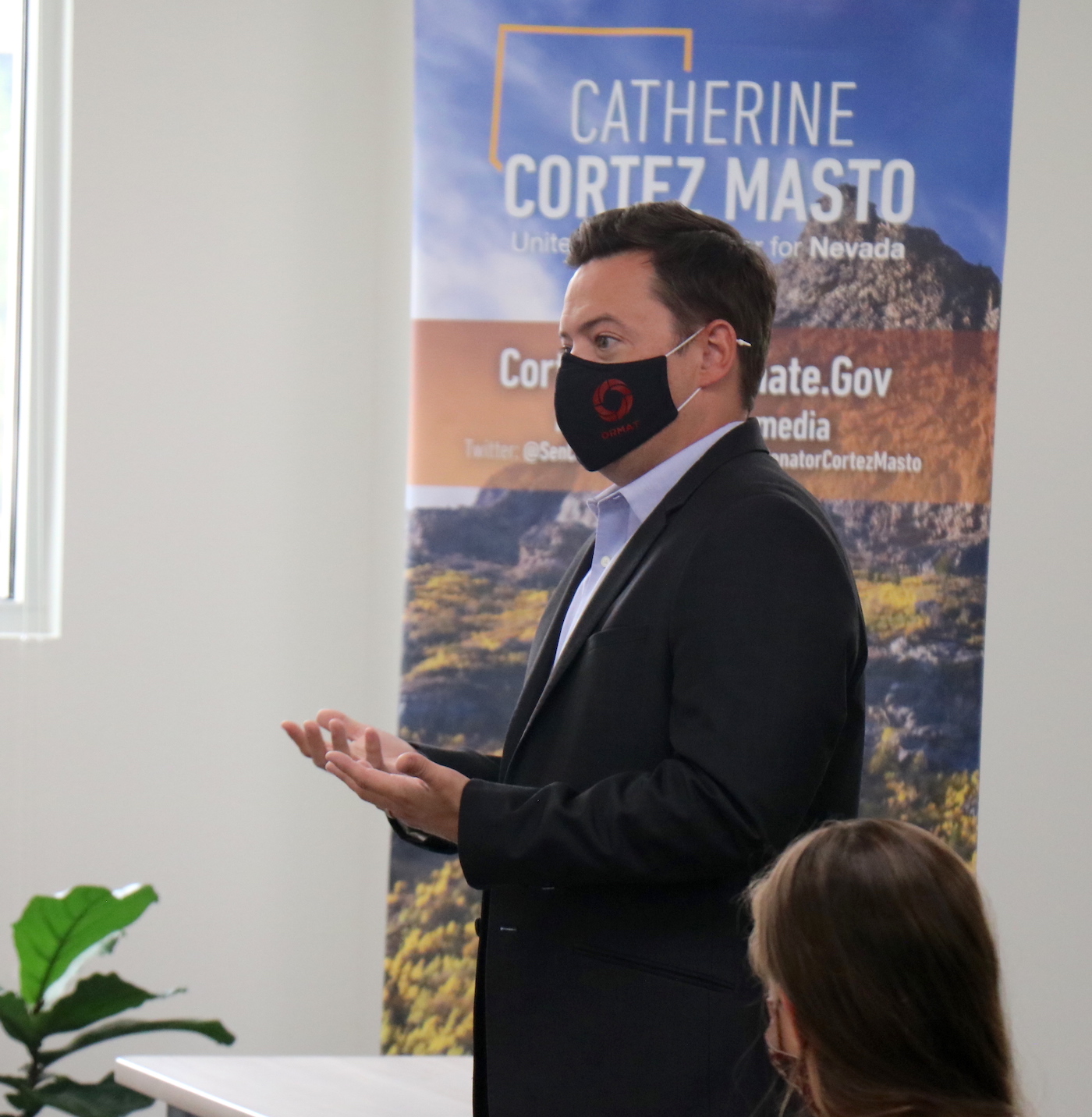Democratic U.S. Sen. Catherine Cortez Masto speaks to a roundtable of clean energy stakeholders on Aug. 23 at the Reno + Sparks Chamber of Commerce. Photo by Kaleb Roedel.
 Paul Thomsen, vice president of business development at Ormat Technologies, discusses challenges with the lengthy federal permitting process at the Aug. 23 roundtable. Photo: Kaleb M. Roedel
Paul Thomsen, vice president of business development at Ormat Technologies, discusses challenges with the lengthy federal permitting process at the Aug. 23 roundtable. Photo: Kaleb M. Roedel